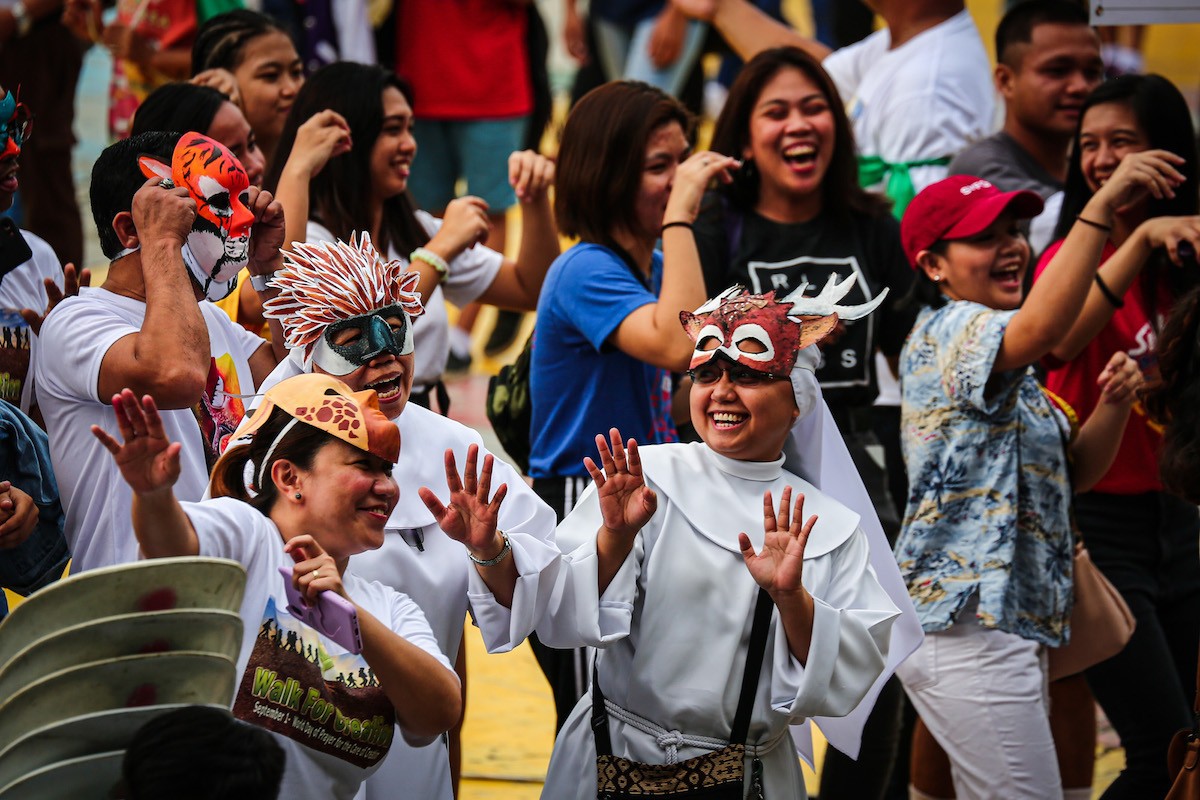Faith-based organizations in the Philippines praised the recognition of the right to a safe environment as a fundamental right by the United Nations’ human rights body.
The adoption of the resolution by the UN Human Rights Council will benefit the “poor and marginalized communities who are most vulnerable” to the impacts of climate change, said the groups.
On October 8, the UN Human Rights Council voted to recognize the right to a safe, healthy, and sustainable environment as a human right.
The Council also voted to appoint an expert to monitor human rights in the context of the climate emergency and called on countries to advance environmental protection.
The Philippines, with 42 other UN member-states, voted yes to the proposal while four countries – China, Russia, India, and Japan – abstained.
Bishop Jose Colin Bagaforo, national director of Caritas Philippines, described it as “a victory for the marginalized sectors who suffer the most because of the impacts of the climate crisis.”
“This is a breakthrough, especially for the poor and the abandoned who are most vulnerable to the impacts of the ecological crisis due to the greed of the few,” said the prelate.
The resolution, which was first discussed in the Council in the 1990s, is not legally binding, but it has a huge potential in shaping global standards and could help build legal arguments.
Rodne Galicha, executive director of Living Laudato Si Philippines, said the “cries of the poor and the earth have been heard” for the first time in the international human rights body.
“May this recognition of the right of human beings to have a safe and healthy environment be an instrument to further recognize our dependence on the very right of nature to regenerate, thrive, and survive,” he said.
“Let’s end this anthropocene epoch as soon as possible while responding comprehensively to the cries of the earth and the poor,” he added.
In a statement, David Boyd, UN special rapporteur on human rights and environment, said the move of the Council “is a historic breakthrough that has the potential to improve the life of everyone on the planet.”
“The world’s future looks a little bit brighter today,” Boyd said.
“This has life-changing potential in a world where the global environmental crisis causes more than nine million premature deaths every year.”
Boyd said the recognition of the right to a safe environment will “spark constitutional changes and stronger environmental laws” in many countries.
He urged leaders who will meet at the UN Climate Change Conference in Glasgow next month and at the UN conference on biodiversity in Kunming, China, next week to put human rights at the center of their actions.
The resolution has been endorsed by UN Secretary General António Guterres, High Commissioner for Human Rights Michelle Bachelet, and 15 UN agencies, and was supported by young activists, business groups and more than 1,300 civil society organizations from around the world.
Pro-environment groups in the Philippines called on the government to translate the resolution into “stronger implementation and enactment of domestic laws” aimed to protect the environment.
Jaybee Garganera, national coordinator of Alyansa Tigil Mina, said the government must “immediately pass domestic laws and national policies that will subscribe and fulfill this mandate.”
“It is necessary to recall that the 1987 Philippine Constitution already recognizes this under Article 2, Section 16, which states that the State ‘shall protect and advance the right of the people to a balanced and healthful ecology in accord with the rhythm and harmony of nature.’”
Garganera urged President Rodrigo Duterte to “immediately revoke” policies that enable environmental destruction and “to stop the aggressive promotion of large-scale mining across the country.”
“In particular, we call for a moratorium on the processing and operations of offshore and seabed mining in the western coast, from Cagayan down to Bataan provinces,” he said.
Leon Dulce, national coordinator of Kalikasan People’s Network for the Environment, said the resolution is “a historic precedent that will increase global recognition of the work of environmental defenders across the world.”
He urged Congress to enact a special bill of rights for environmental defenders that seeks to institutionalize new protection and remedy mechanisms for their environmental rights.
